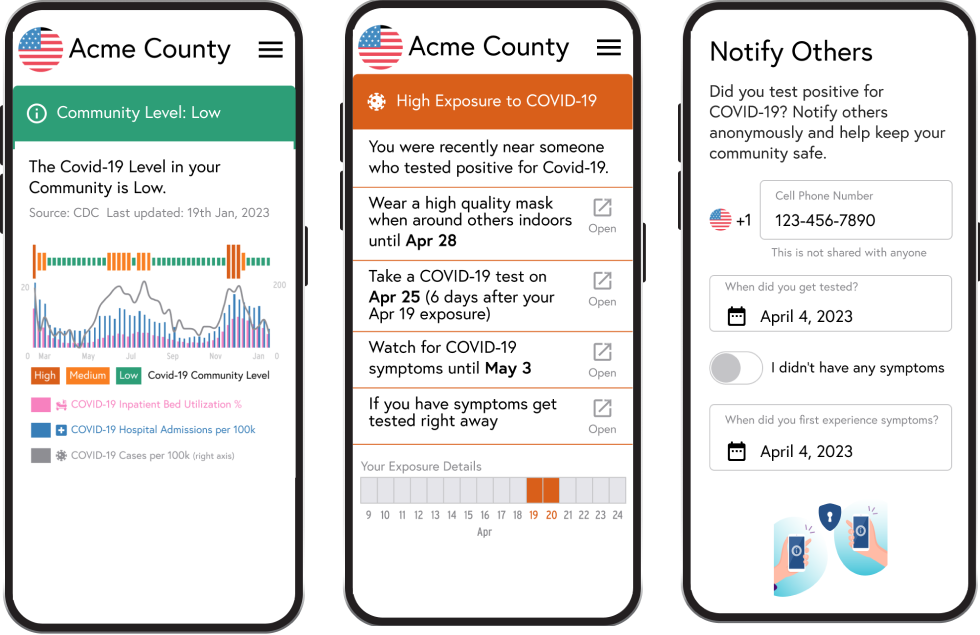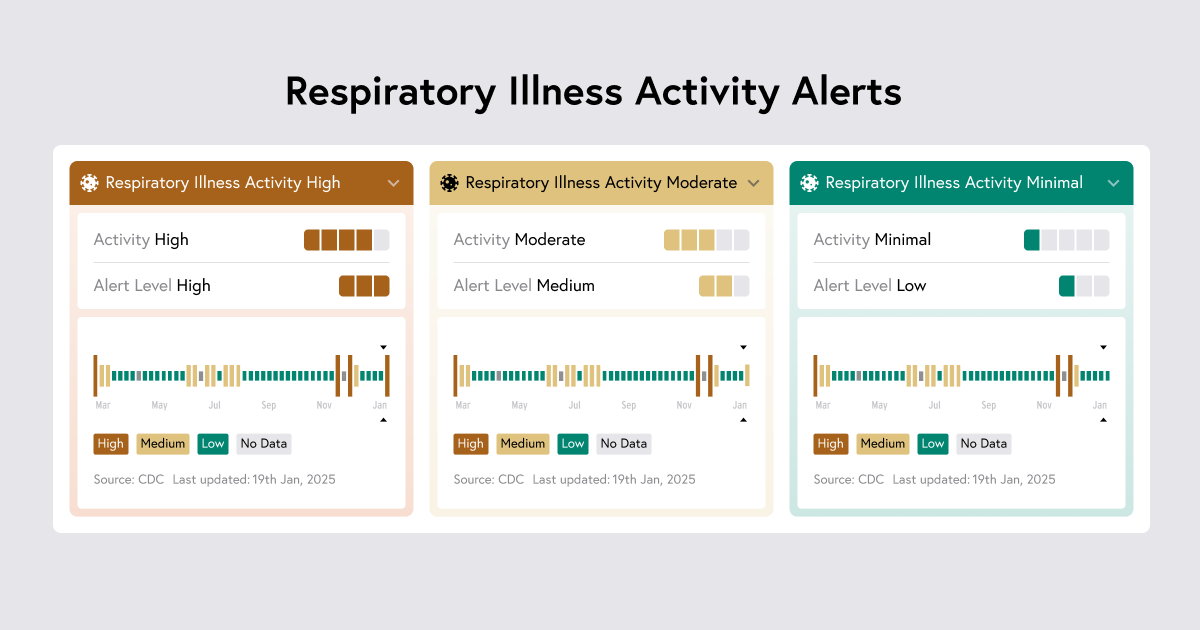Wehealth now also alerts on CDC Respiratory Illness Activity levels
Wehealth's mission is to build digital infrastructure to enhance global preparedness and resilience. Providing enhanced alerts from verified sources...
1 min read
 Sameer Halai
:
May 12, 2023 3:30:54 PM
Sameer Halai
:
May 12, 2023 3:30:54 PM
On May 11, 2023 the Public Health Emergency (PHE) ended. Due to this the National Key Server (NKS), National Verification Server (NVS) and SMS service, maintained by American Public Health Laboratories (APHL) was shut down. And the EN Express (ENX) offering from Google & Apple was also turned off. This led to several States turning off their Google Apple Exposure Notification (GAEN) service. You can see the latest status here.
The Wehealth Notify app, developed in collaboration with University of Arizona, has had a mirroring relationship with all other states but it has always maintained its own Key Server, its own Verification Server, it's own SMS service and it's own custom apps. Due to this PHE ending has had no impact on its ability to continue to deliver exposure notifications. So it will continue to work for the foreseeable future.
Our survey data shows that even in 2023, 70% of people getting notified report being of age 50 or older, and 37% report having a risk of severe illness or weakened immune system. The service continues to provide extremely valuable information to the right people at the right time. As we adapt to the new normal, protecting the vulnerable is something people continue to show willingness for in their actions.
In addition to exposure notifications, the app also displays the latest CDC data for every single county in the US and can notify users when hospitalization levels in their local county goes above a threshold.
Anonymous exposure notification systems show high utility at conferences, concerts, sporting events, public transit and settings where a lot of people come into contact with each other in a short amount of time. E.g. in an incident like this Dozens of people infected with COVID-19 at CDC’s annual conference, anonymous exposure notifications can quickly alert the right people about their risk of infection and provide personalized recommendations, helping them exercise precautions.
As we recover from the prolonged pandemic response and begin to define the endemic phase of COVID-19, natural disasters, emerging infectious diseases, terrorist threats, climate issues, and maintenance of all-hazards plans can now be reexamined and prioritized. The Wehealth platform has been extended to support other hazards. It provides a unique and effective tool to help stratify the population based on risk of different hazards, put mitigation plans in place, and provide a trusted communication channel to reach the right people with the right information at the right time. Wehealth All-hazard Preparedness Platform was recently presented at the NACCHO National Preparedness Summit in Atlanta.
![]()


Wehealth's mission is to build digital infrastructure to enhance global preparedness and resilience. Providing enhanced alerts from verified sources...

Wehealth Notify is a free app for the public. Built with CDC funding and in partnership with National Oceanic and Atmospheric Administration (NOAA) /...

We are excited to announce the release of the updated Wehealth Public Dashboard that shows a more comprehensive picture of the alerts being delivered...